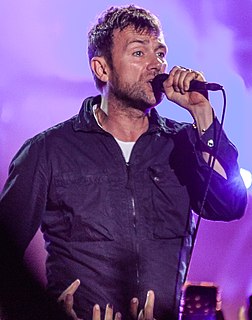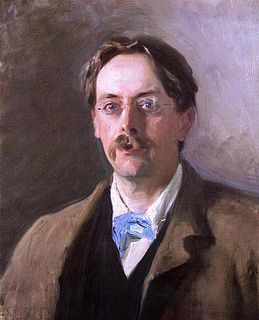A Quote by Hillary Clinton
A lot of the people in history who I really admire lived before the hyperinformation age we're living in. Even if they were governing or solving problems in consequential periods, like the Civil War or the world wars or the Great Depression or the Cold War, they had a period of time and space to actually think, to be private and you read their biographies, and they had time to think about what was happening and how to respond. I don't think human nature has changed in the last 50-150 years, but the stresses, the demands on those of us in public life have just exploded.
Quote Topics
About
Actually
Admire
Age
Before
Biographies
Changed
Civil
Civil War
Cold
Cold War
Demands
Depression
Even
Governing
Great
Great Depression
Had
Happening
History
How
Human
Human Nature
Information Age
Just
Last
Life
Like
Lived
Living
Lot
Nature
People
Period
Periods
Private
Problems
Public
Public Life
Read
Really
Respond
Solving
Space
Think
Those
Time
Time And Space
Time To Think
Us
War
Wars
Were
World
World War
Years
Related Quotes
What it targets is not something that's really looked at a lot in terms of the war. This is stuff that's off the beaten path in terms of what we think of every time you start a Civil War history or a Civil War presentation. It's usually about the military and the soldiers and all that stuff. And this is not. It's the backdrop to a place and a time and circumstances that didn't have anything to do with that.
For over two centuries, each generation of Americans before us confronted and solved problems. They embraced opportunities and Americans have never had it easy. This was a nation founded by declaring independence for the most powerful empire in the world. This was a nation that faced a divisive and bloody civil war, two great world wars, a long cold war.
It was Harry Patch, who was the last living World War I veteran; and by veteran I mean someone who actually fought in the war, he didn't just happen to be in the army at that time, in the Great War. And when the Iraq War started, he was interviewed, and they said, well what do you think of this? And he said, in a very sad voice, "Well, that's why my mates died. We thought we were going to end all that sort of thing."
I think it's going to be remembered as the last major war on planet Earth, if we're lucky, if we maintain our foreign policy properly. It will be remembered as the last time major countries had to put people in the field and put them in harm's way. It may be the last of all human nature wars, which is a nice way to remember any kind of a war, as the last one.
The Philippines and the U.S. have had a strong relationship with each other for a very long time now. We have a shared history. We have shared values, democracy, freedom, and we have been in all the wars together in modern history, the World War, Second World War, Cold War, Vietnam, Korea, now the war on terrorism.
It was a wonderful time to be young. The 1960s didn't end until about 1976. We all believed in Make Love Not War - we were idealistic innocents, darling, despite the drugs and sex. We were sweet lovely people who wanted to throw out all the staid institutions who placed money and wars above all else. When you're young you think that's how life works. None of us were famous, we were broke. We didn't think they'd be writing books about us in 30 years. We were just kids doing the right thing.
For 40 years we were led to think of the Russians as godless, materialistic and an evil empire. When the Cold War ended, we suddenly discovered that Russia was a poor Third World country. They had not been equipped to take over the world. In fact, they were just trying to improve a miserable standard of oppressive living, and couldn't. They had to spend too much on arms build-up. We didn't win the Cold War; we bankrupted the Russians. In effect, it was a big bank exhausting the reserves of a smaller one.
I don't think I had any idea at the time how to work with someone as masterful as he is. And I don't think at the time I really understood what was happening. I think I was in a space where I was like: there are all these things. I was shooting all these takes with David, and I was just confused, as a person, and as an actor feeling a little too big for my britches and that this thing was happening and then also not having enough skill yet, and technique to know exactly where I was, and know about the character.
Each individual has their own opinions about whether war is an answer to any problems. Personally I think it's a waste of time, but I think more importantly, that it's is an issue that we haven't had any say in. That's why I feel so strongly about it. I don't feel like we've really been given any choice in this matter. I think if you had a referendum tomorrow, Tony Blair would have no choice but to call off the war.
Because the US has control of the sea. Because the US has built up its wealth. Because the US is the only country in the world really not to have a war fought on its territory since the time of the Civil War ... Therefore we can afford mistakes that would kill other countries. And therefore we can take risks that they can't ... the core answer to why the United States is like this is we didn't fight World War I and World War II and the Cold War here.
History of America, Part I (1776-1966): Declaration of Independence, Constitutional Convention, Louisiana Purchase, Civil War, Reconstruction, World War I, Great Depression, New Deal, World War II, TV, Cold war, civil-rights movement, Vietnam. History of America, Part II (1967-present): the Super Bowl era. The Super Bowl has become Main Street’s Mardi Gras.
The immediate success of the war poem anthologies ... proved that the war had aroused in a new public an ear for contemporary verse ... There has never before, in the world's history, been an epoch which has tolerated and even welcomed such a flood of verse as has been poured forth over Great Britain during the last three years.

































